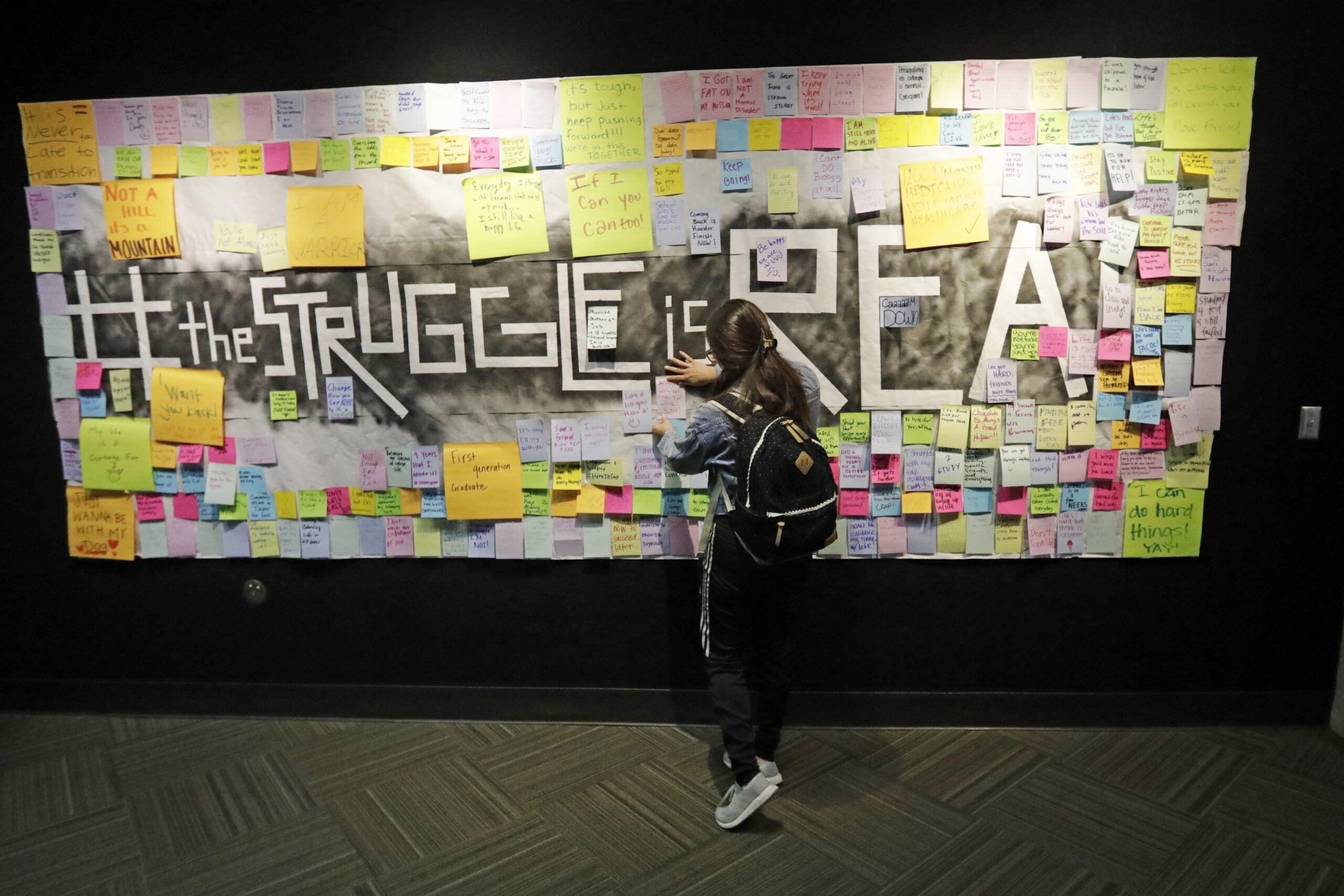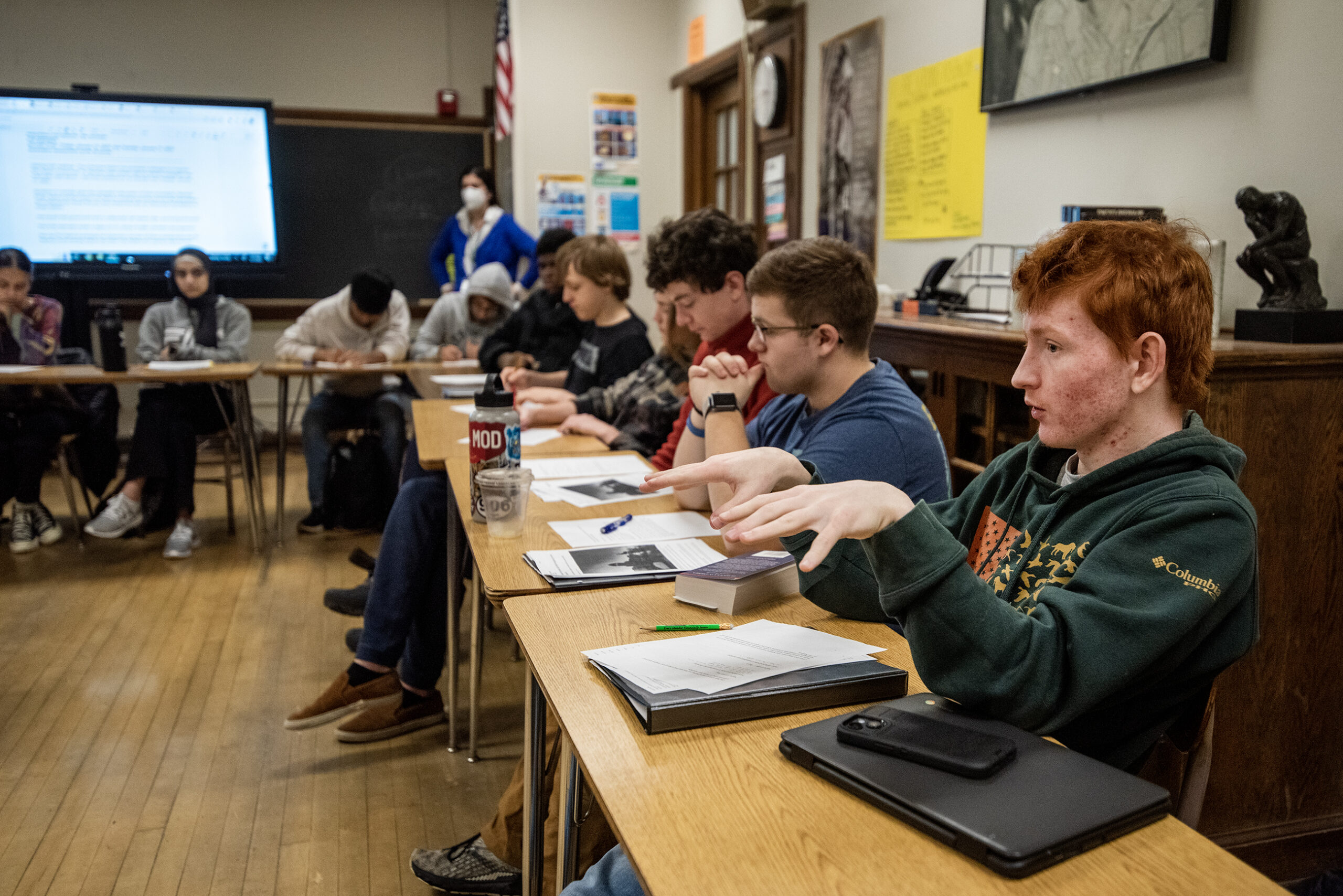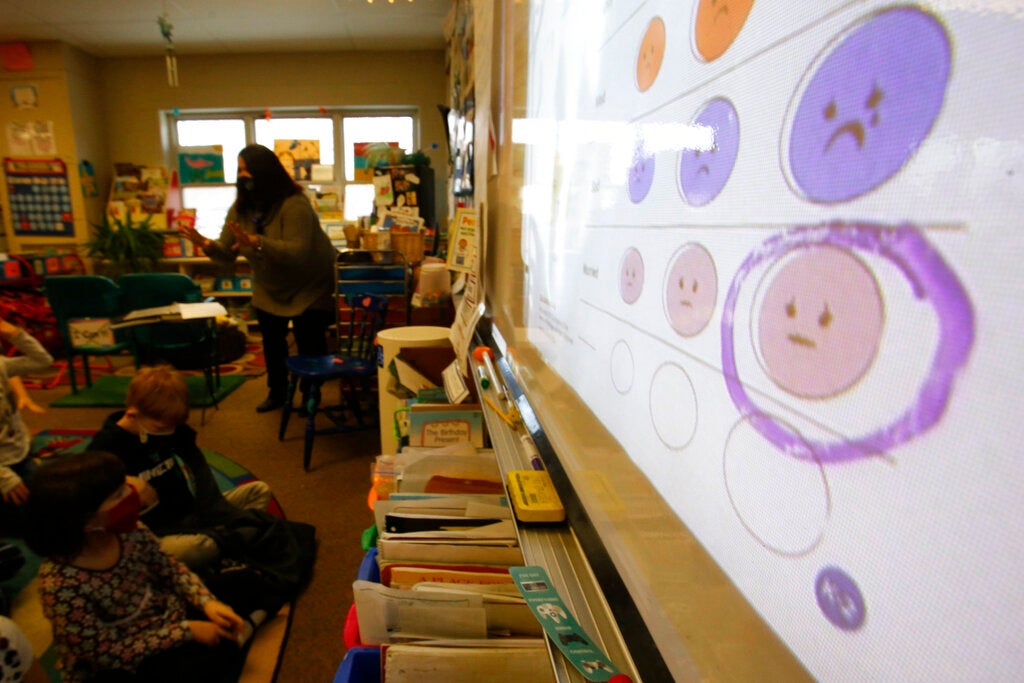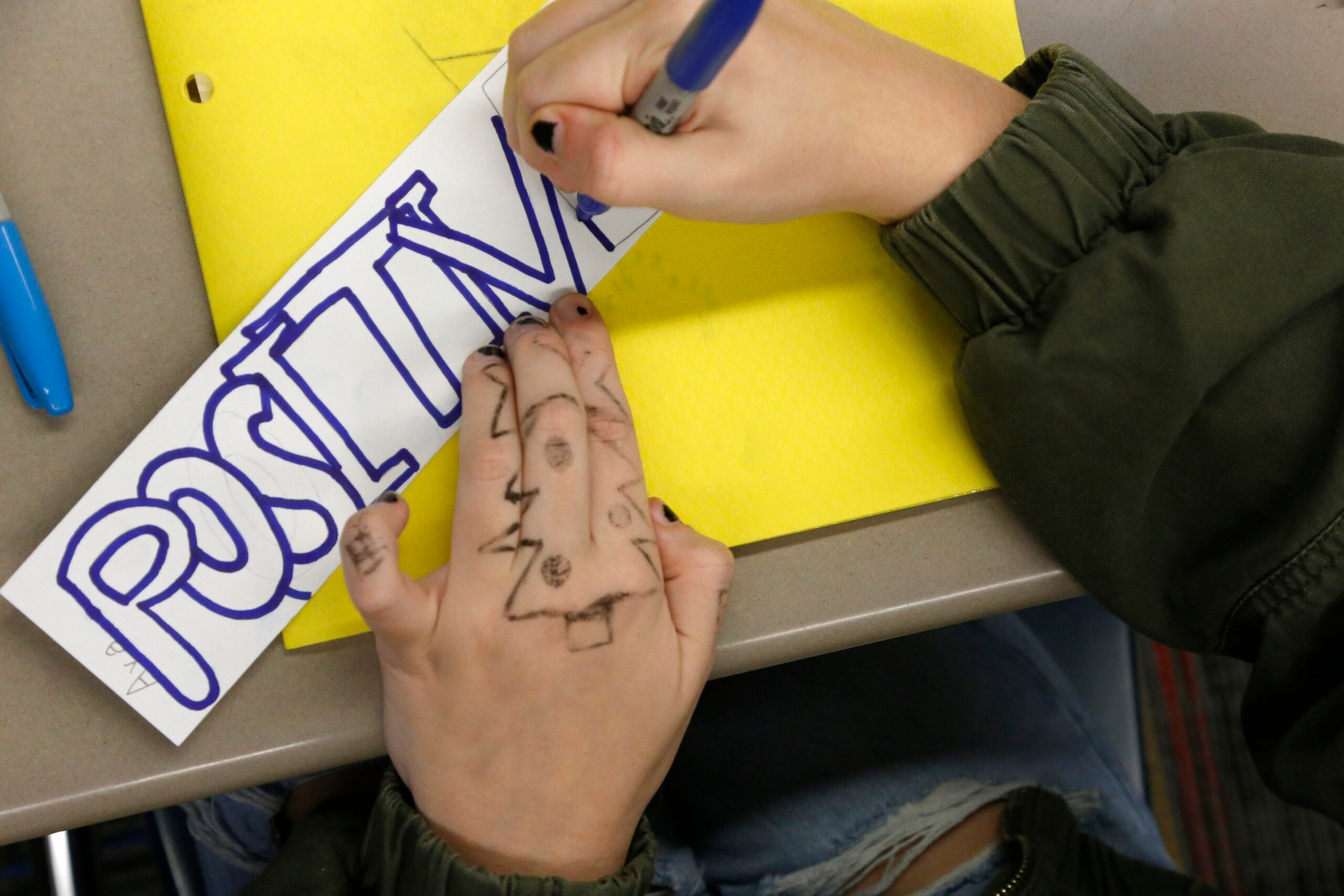A panel of teens say they rely on friends and family for emotional support and that school resources aren’t necessarily meeting their mental health needs.
The discussion was part of a virtual event hosted by the state Office of Children’s Mental Health as part of its Mental Health Awareness Week. Gov. Tony Evers declared Thursday Children’s Mental Health Awareness Day.
“I have a lot of friends who struggle with their mental health,” said Yashneil Randhawa, a 16-year-old panelist. “Our school district doesn’t really provide them with the support that we need. … Sometimes you’ve just got to go out and learn for yourself.”
News with a little more humanity
WPR’s “Wisconsin Today” newsletter keeps you connected to the state you love without feeling overwhelmed. No paywall. No agenda. No corporate filter.
The state office regularly promotes public discussions of youth mental health, and connects schools and other organizations with resources to help young people. Its April report found “children with special education needs, low-income, and children in rural areas” were disproportionately affected by COVID-19, and that depression, anxiety and suicidal ideation has increased in college students ages 18 to 24.
In the virtual panel discussion, led by La Crosse Area Family YMCA mental health director Sarah Johnson, teens discussed their own experiences and how they manage their mental health, with an emphasis on how they’ve made things better for themselves and others.
“I’ve had mental health illnesses and struggles, and I taught my mom and my dad a little bit on the best way to be there for me,” said Lacey McPhee, a high school junior. “And so over the years, it’s definitely been so much better, and my mom is like my biggest support system.”
There’s no question that the pandemic has taken a toll on youth mental health. A study of insurance claims from January to November found Wisconsin was among the top five states nationally for doctor and emergency room visits to treat self-harm in teens.
Several panelists discussed the benefits of being involved in extracurricular activities. After schools shut down in-person instruction early in 2020 as a pandemic precaution, they have returned to fully in-person or a hybrid of virtual and in-person instruction this year, including extracurricular activities.
In his proposed budget, Evers, a Democrat, included $46.5 million in spending for school counselors, psychologists, social workers and nurses that would fund staff in all school districts, and a funding increase of $7 million to school-based mental health collaboration grants. Republicans in the Legislature this week slashed billions from that proposal, leaving the status of youth mental health funding uncertain. But the issue has been an area of relative bipartisan agreement in recent years; the Office of Children’s Mental Health was created under Republican Gov. Scott Walker, and GOP legislators have boosted its funding in past budgets.
If you or someone you know needs help, the National Suicide Prevention Lifeline is available 24 hours, seven days a week at 800-273-8255. The Wisconsin chapter of the National Association of Mental Illness also has information and resources available at https://namiwisconsin.org.
Wisconsin Public Radio, © Copyright 2025, Board of Regents of the University of Wisconsin System and Wisconsin Educational Communications Board.







